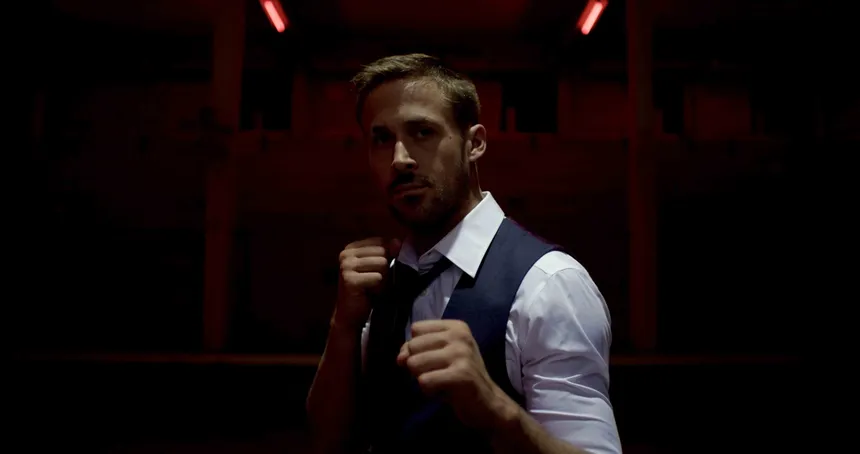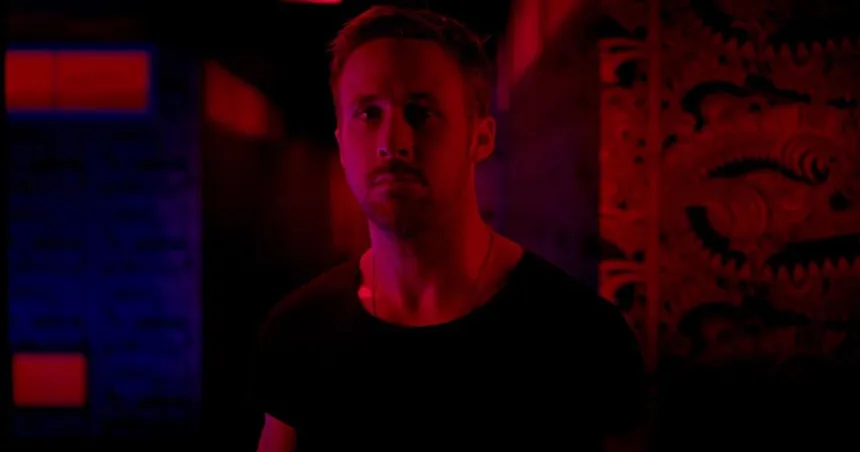Nicolas Winding Refn’s Only God Forgives is a daring cinematic exploration of the cyclical violence, ignorance, and cultural dissonance that pervades contemporary society. Set against the gritty backdrop of Bangkok’s criminal underworld, the film follows two American brothers who find themselves entangled in a desperate dance of revenge after their brother’s murder by a vigilante detective.
The story unfolds with sparse character development, emphasizing the cyclical nature of violence as a foreign obligation rather than a personal vendetta. This is reflected in the detached attitudes of the protagonist and his mother, who treat the crime as a mere formality. The use of neon-infused surrealism and murky atmosphere further evokes a dreamscape, highlighting the absurdity and emotional detachment prevalent in the characters’ lives.

A Still From Nicolas Winding Refn’s Only God Forgives (Via IMDB)
More importantly, the film casts a critical eye on the phenomenon of white ignorance through the contrasting portrayals of the brothers and the detective. While the Americans remain oblivious to Bangkok’s cultural heritage, Chang embodies the city’s rich traditions. This dichotomy underscores the disconnect experienced by outsiders when they attempt to navigate unfamiliar cultural contexts.
Visually stunning and intellectually stimulating, Only God Forgives challenges audiences to confront the inherent meaninglessness of violence and engage in critical reflection on cultural ignorance. Wrapping the narrative in a cycle of retribution, the film poses a haunting question: how can we break free from the endless loop of revenge and fostering a more just and equitable society?
























